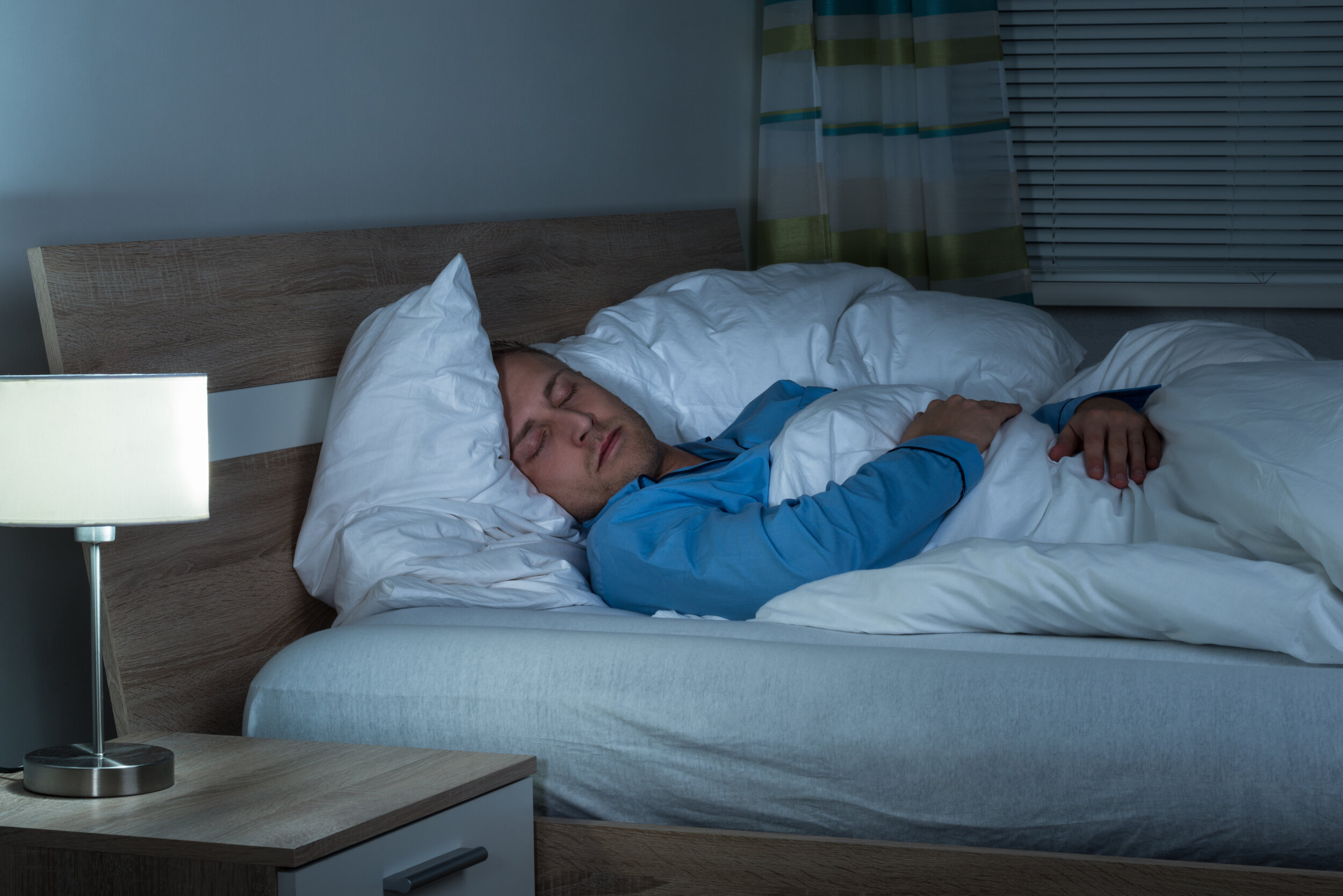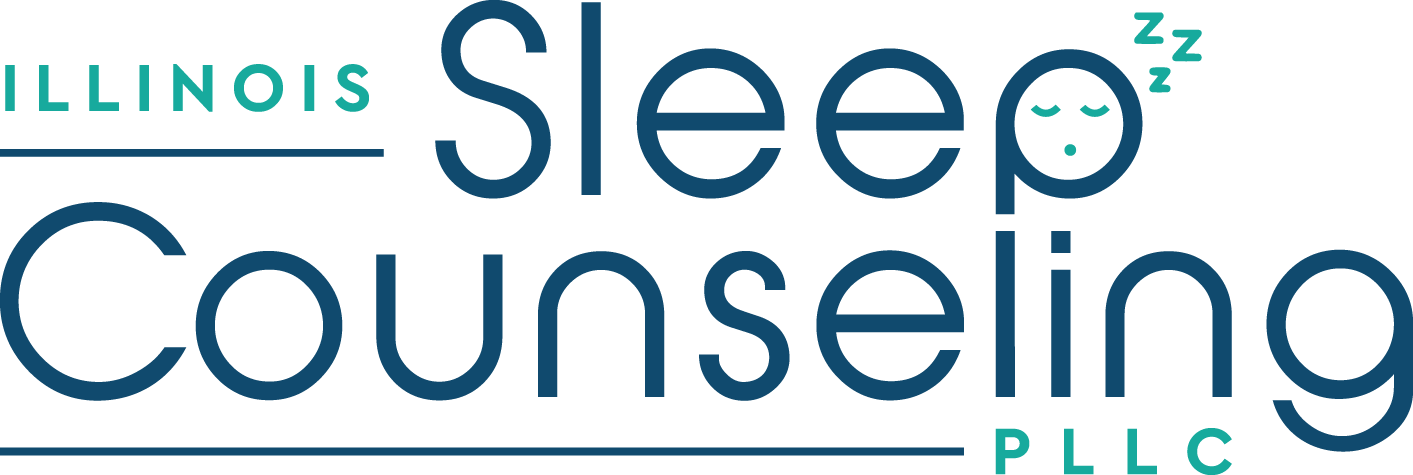
If you…
Struggle to fall or stay asleep…
Start to feel sleepy, but find your mind racing once you get into bed…
Are unable to fall asleep until you’re completely exhausted…
Have tried home remedies, apps, or over-the-counter medication with no success…
Have a prescription for sleeping pills, but hate how they make you feel…
Are in search of a solution to fix your chronic insomnia issues for good…
Illinois Sleep Counseling can help.
Our counselors will work with you to assess the sleep problems you’re dealing with, and craft a treatment plan based on scientifically accepted, peer-reviewed practices.
Once you’ve successfully completed treatment, you will have the tools to prevent future bouts of insomnia.
Frequently Asked Questions
Why can’t I sleep?
Sleep is a complex biological and psychological process. Disturbed sleep is usually caused by circadian, homeostatic, behavioral, or arousal reasons.
Circadian Rhythm: When you get sleepy. Your circadian rhythm, or 24-hour internal clock, cycles your brain between sleep and wake at regular intervals. It relies on blue and green light to trigger your body’s alertness system, which is why most people are awake during the daytime. When darkness comes, the circadian rhythm changes from promoting alertness to making hormones, including melatonin, that tell the body to get ready to go to sleep. Problems occur when a person tries to go to bed too early or too late, or takes melatonin supplements to reset the timing of their sleep close to bedtime.
Homeostatic Process: How long you are awake before you get sleepy. From the time you wake up until the time you fall asleep, your body builds up chemicals in your nervous systems that tell you to get sleepier the longer you are awake. This is usually countered by the alertness boost created by the circadian rhythm, so you don’t feel sleepier and sleepier as the day progresses. One exception to this occurs around midday, which is why many people experience midday lulls in energy. When this happens, you are feeling the sleepiness made by the homeostatic system because the circadian rhythm is taking a brief break. (Having a cup of coffee at around 10-11am is usually perfect to help counter this). Problems in this category typically occur when a person has used up their homeostatic sleep pressure by napping or snoozing. Some people who suffer from disorders like hypersomnia or narcolepsy experience problems here as well.
Behavioral: Where you get sleepy. Problems in this category are caused when a person practices being awake in bed by being awake for too long while in bed. Anything you practice over and over will become something your body gets used to and prepares for. For example, some people train themselves to sleep only on one side of a bed, and usually feel uncomfortable if they try to sleep on the other side. In an ideal world, people train themselves to associate bed with sleep, and their bodies begin to prepare them for sleep when they get into bed. Unfortunately, over time, people can associate bed with something other than sleep, like having their minds race through everything that happened during the day. When this happens, new associations are required in order to go back to regularly sleeping well. CBT-I primarily works on building these new associations. Issues arising because of problems with this system are typically considered Chronic Insomnia and this kind of insomnia can go on for years.
Arousal: What is happening when you get sleepy. No matter how sleepy you are, if something scary or exciting is happening, you can usually remain awake. This can apply to positive life events or pain. Most people who win the lottery don’t get much sleep the night they find out they won. Issues that arise from this system are typically acute insomnia and usually wear off after a week or two but can be ongoing when dangers or stimulus are continuous.
How is Illinois Sleep Counseling’s approach different from other insomnia treatments?
At Illinois Sleep Counseling, we use empirically-based peer-reviewed techniques, especially cognitive behavioral therapy for insomnia (CBT-I), to address sleep issues. Our therapists are fully licensed and have received extensive training licensed specialists in behavioral sleep medicine. While other types of treatment may be effective for short-term acute insomnia, our methods address long-term chronic issues on a personalized basis.
I have already talked to my therapist about insomnia and the advice they gave didn’t help. How is this different?
There are many reasons why therapy might not work, but the most common problem for people who are seeking help with sleep issues is that the therapist they are working with doesn’t have the correct training to deal sleep issues.
Cognitive Behavioral Therapy (CBT) and Cognitive Behavioral Therapy for Insomnia (CBT-I) is not the same thing. If you're looking for a therapist to help you resolve sleep problems, you need someone trained specifically in CBT-I.
Many therapists or medical professionals are trained in sleep hygiene. This is not an effective treatment for insomnia by itself. Neither is “dealing with the underlying issue.” CBT-I or CBT-I plus working on other issues are effective treatments for insomnia. The American Academy of Sleep Medicine, the American College of Physicians, and the American Psychological Association all agree on CBT-I as a first line treatment.
If you’re looking for a therapist outside of Illinois to help you with this, start your search at the Society of Behavioral Sleep Medicine’s find a provider site:
If you can’t find one in your area there, check Psychology Today’s find a provider site. Search for someone trained in Sleep and Insomnia, and then go through the profiles until you find one that says CBT-I, Cognitive Behavioral Therapy for Insomnia, or Behavioral Sleep Medicine.
If you can’t find one in your area there, try using the Cleveland Clinic GO! TO SLEEP app.
Does Illinois Sleep Counseling accept insurance?
Currently, Illinois Sleep Counseling accepts Cigna, Blue Cross Blue Shield PPO, BCE - Blue Choice PPO Preferred, BCO - Blue Choice Options, and BCS - Professional Blue Choice PPO.
If your insurance company isn’t listed or you’re unsure if your covered, please contact us and we can verify coverage. If you aren’t insured by one of the listed companies, please contact us, and we’ll do our best to find a way to work with you.
What to Expect
Treatment at Illinois Sleep Counseling typically takes around six to eight sessions. We’ll start with an introduction and assessment session to get to know you and formulate a treatment plan. From there, you’ll track your sleep with a sleep diary via an app or with pen and paper, and will come back for 6-8 followup sessions in our offices or via telemedicine so we can evaluate your progress and help you to make changes as needed. And once we’ve finished working together, you’ll be sleeping better…and know how to fix the problems if they ever recur.
